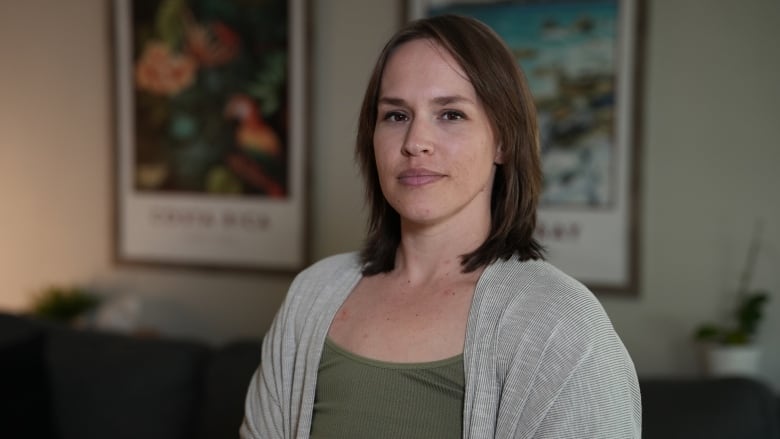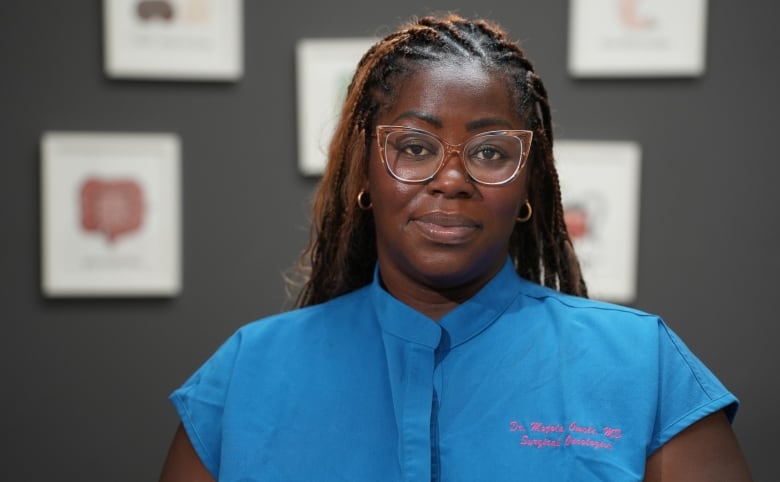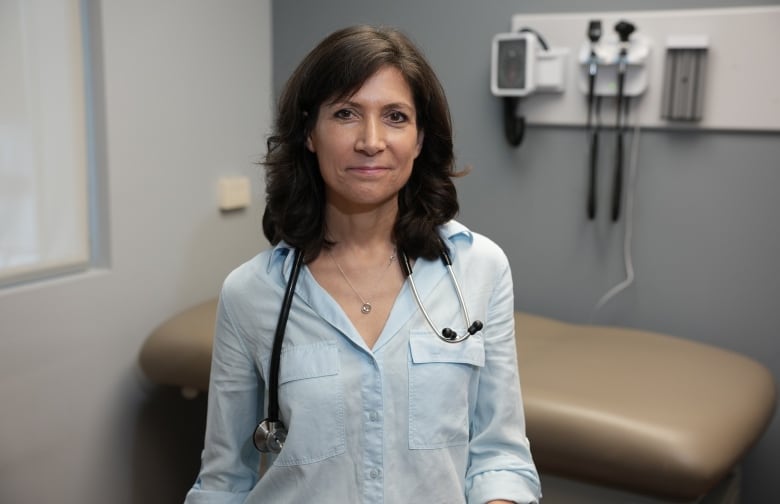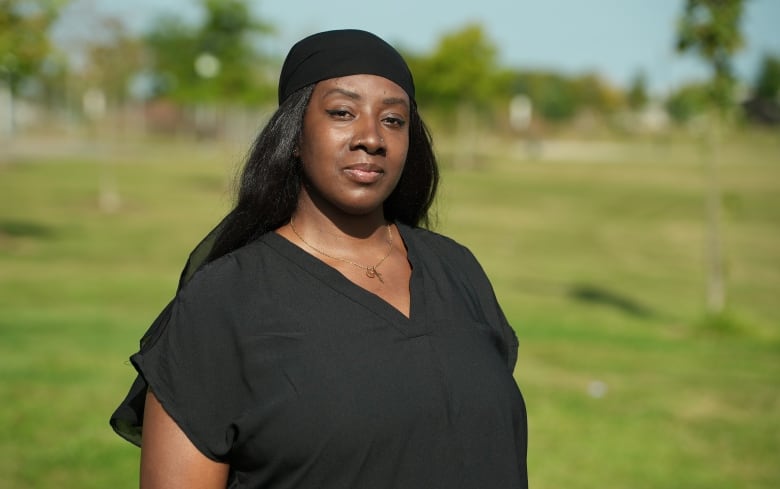'My world stopped': What it's like to learn you have cancer from a message on your phone
Doctors concerned about hospitals delivering serious diagnoses to patients via apps, without context

When Beth Marchant opened the email announcing that her ultrasound results were ready, the then-32-year-old was floored to discover it contained a breast cancer diagnosis.
"I saw the word carcinoma," Marchant said in an interview in her home in Cambridge, Ont. "In an email that's not how you want to find out that you have stage 3 breast cancer."
Jnnelle Johnson also in her 30s had a similar experience when she created her account on MyChart, one of the most widely used patient data apps in Canada.
"I logged in and then that's when I saw 'invasive ductal carcinoma,'" said Johnson, who lives in Hamilton, Ont. "My world stopped."
As more Canadians get online access to the results of their medical tests, what Johnson and Marchant went through reveals an emerging concern: people learning about a life-changing diagnosis on a screen, without a doctor there to explain it and sometimes alone.
"When a patient finds out that way, it's heartbreaking," said Dr. Mojola Omole, a surgical oncologist in Toronto.
Omole said when patients receive a cancer diagnosis, it's important that a health-care professional is with them to explain the next steps and their prognosis.
"Without that, people are just lost, and that's really not fair," Omole said. "That's not good patient care."
While hospitals and labs that offer online health portals can control the timing of when certain test results are released to patients, there appear to be no consistent policies across Canada about the virtual delivery of medical bad news.

Dr. Kimberly Wintemute, a family physician at the South East Toronto Family Health Team, said when a patient gets a new diagnosis, they typically have questions that can't be answered by a few words in a test result.
"I think the hospitals have a responsibility to work with patients to prevent these kinds of events from happening, where people get difficult results in a lonely circumstance without context," said Wintemute in an interview.
Officials with Epic, the Wisconsin-based company behind MyChart, said that hospitals can tailor the platform to hold back the results of certain tests until a doctor gives the green light.
But not all hospitals do so.
There are some that put the onus on the patient to decide which test results they want to get online.
Toronto's University Health Network (UHN), which introduced its patient data portal in 2017, surveyed about 30,000 patients and found that 94 per cent reported they would prefer to have their results as soon as they are complete, even if the results are worrisome, according to a hospital spokesperson.
"Patients can also choose to have notifications turned off so that they are not alerted when results come in," said UHN's spokesperson in an email to CBC News.

Studies in other countries including one published last year in the Journal of the American Medical Association have found that for the majority of patients, getting real-time access to their health data reduces their anxiety, said John Kildea, who led development of the Opal patient portal at McGill University Health Centre in Montreal.
"For sure there's a nuance between results that can be very serious and very sudden and results that are more routine," Kildea said in an interview.
"If most patients are telling us that they're benefiting from this, I see it as being like a medication or a drug. All drugs have some side effects for some patients, but we don't throw out the drug because of those side effects."
'A conversation with an actual human being'
But Marchant and Johnson question whether it's appropriate for someone to learn they have cancer via an online message.
"It just was not the same level of personal attention that I think that level of diagnosis deserves," said Marchant. "At the very bare minimum, there should be a conversation with an actual human being."
The day she got her results, Marchant couldn't get in touch with her family doctor for hours, and she said the news sent her down a rabbit hole of frightening internet searches.
"I looked, and I'm like, 'Oh my God, I have like a 50 per cent chance of dying within five years.' As a mom of three, with a six-month-old baby, that's horrifying," she said of her diagnosis in 2022.

Johnson said she was devastated by her breast cancer diagnosis, which she got on her phone, alone in her bedroom.
"To get that kind of news when you're by yourself, it's difficult to handle," she said. "To see it that way, it was like a gut punch."
Johnson is now in treatment and regularly undergoes scans to check whether the cancer has spread. When those results arrive in the app, she said she doesn't open them until she hears from her doctor.













_(720p).jpg)


 OFFICIAL HD MUSIC VIDEO.jpg)
.jpg)



























































































